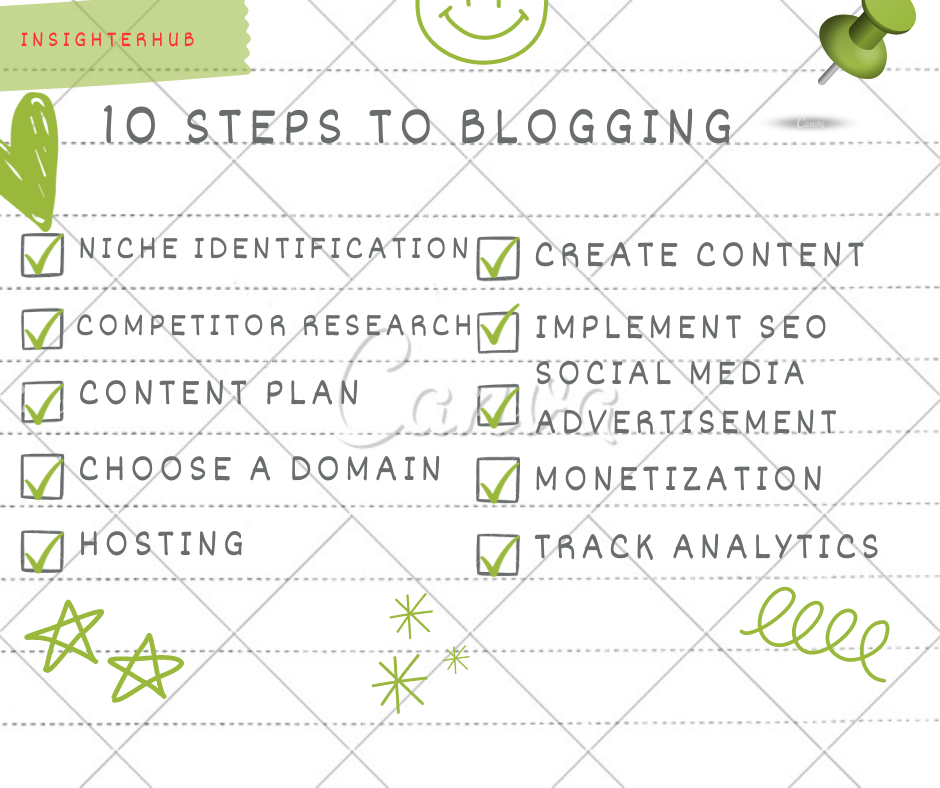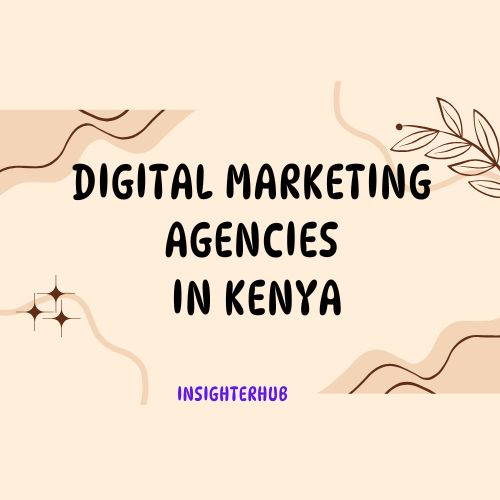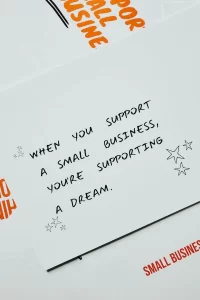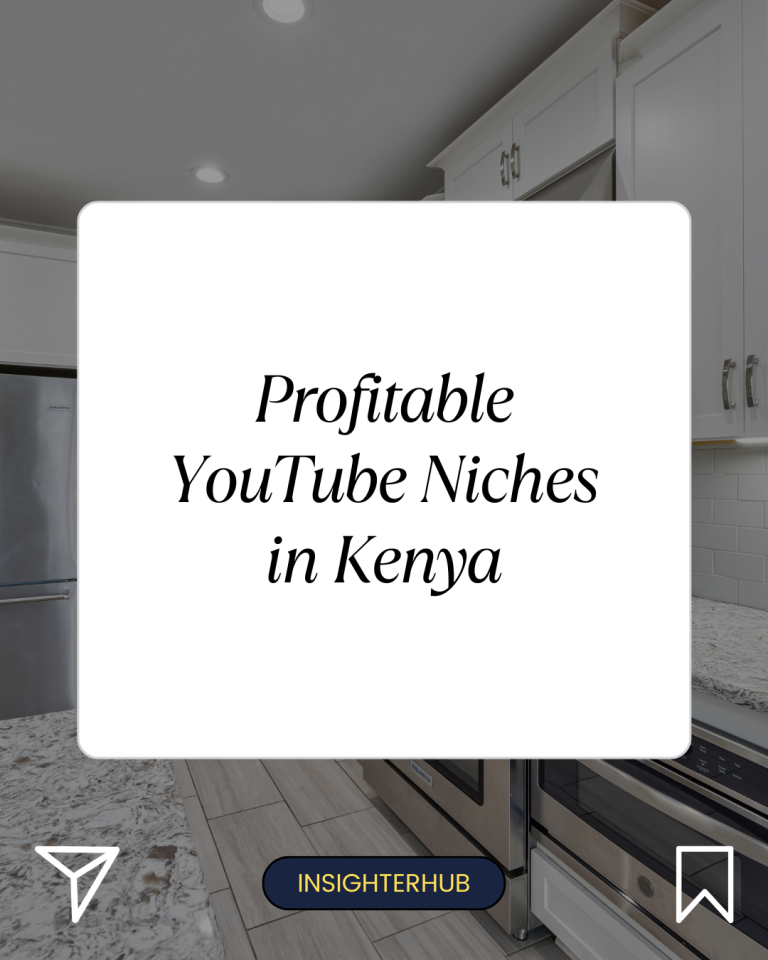Many people ask the question, “Is blogging a good business in Kenya?” when considering venturing into freelance work, either part-time or full-time.
The answer may be yes or no, depending on how well the blogging strategy is employed.
Blogging is the process of publishing various content, such as articles, images, and videos, on a particular blog in an informal and personal tone.
Blogs are used to educate, entertain, or persuade readers and bring them together in the same niche.
With the advent of digital media, blogging has become one of the most profitable businesses for individuals and businesses.
Setting up a blog where one can share one’s expertise or passion with the world requires little investment.
ALSO READ: List of the Best Web Hosting Companies in Kenya
Why Blogging
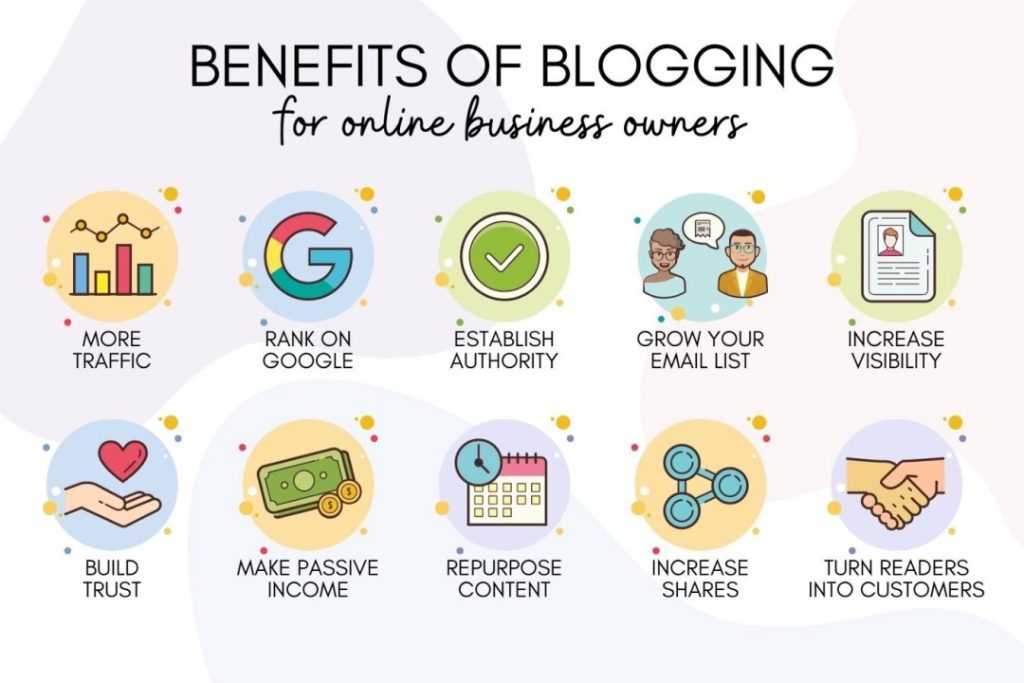
Diversification of Income Streams
Blogging offers the opportunity to expand sources of income. Being dependent on a regular job or only one source of income may not be reliable.
A blog with a good monetization strategy enables individuals to earn income in different ways, including through sponsored content, affiliate marketing, advertising, or selling digital or physical products.
The diversification not only ensures financial steadiness but also insulates against possible economic uncertainties.
Flexibility and Work-Life Balance
Blogging allows people to work virtually anywhere with an Internet connection so they can develop their schedules.
This flexibility is desirable for those who strive to achieve a more harmonious balance between work and family life.
The flexibility answers the question, “Is blogging a good business?” Yes, since many people will choose it to enjoy favorable work schedules.
Bloggers can manage their time well because they can work around other obligations, be it spending time with the family, personal interests, or even a 9-to-5 job.
The freedom to work on one’s schedule is a factor that contributes to a more harmonious, happier life.
Personal Brand Building and Networking
Blogging is a core element in establishing a personal brand.
As bloggers post their knowledge, perceptions, and experiences on a particular topic block, they show authority.
If you have a famous personal brand that commands respect in your chosen industry, that will attract people who become loyal business followers.
Apart from this being an advantage, it may also open opportunities for collaborations, partnerships, networking, and many other aspects, which will help further one’s career or even achieve success.
Thus, yes is the answer to the question, ‘Is blogging a good business?’ since a personal brand means a lifetime income stream.
Passive Income Potential
There is an excellent rationale behind passively earning via blogging.
When the blog becomes popular with a consistent readership, some revenue streams, such as affiliate marketing and display advertising, create passive income.
Even when bloggers stop actively producing new content, the previous posts provide a steady stream of visitors and revenue that benefit from such efforts.
The passive income model allows bloggers to remain involved part-time, make money in their spare time, or develop an entrepreneurial portfolio.
Unlimited Scaling Opportunities
Most employment structures do not offer scalability.
However, blogging is one example of a platform that offers such an opportunity without being held back.
By increasing one’s blog audience, earnable income will also increase.
Scalability involves increasing a blog’s audience size, finding new revenue-generating monetization approaches, and broadening the variety of products or services offered.
Due to potential scalability, Yes answers the question, ‘Is blogging a good business?’ as bloggers can scale their incomes.
Instead of career paths providing fixed salaries, where earnings growth may be limited, successful bloggers can dramatically increase their income by constantly growing their presence online and finding multiple ways to monetize.
READ ALSO: 10 Best AI Tools for Bloggers in 2024
Steps in Blogging
Define Your Blog’s Niche and Target Audience
When starting a business blog, the first thing you need to do is decide on your niche, which is the specific topic or industry you’ll focus on.
Additionally, specifying your target audience is vitally important as it allows you to adjust the content and craft of your advertising to follow the demands and interests of your potential readers.
A clear niche and target market helps create a compelling brand identity.
Conduct Competitor Research
Before developing your blog, conduct comprehensive market research on competitors operating within the niche you have settled upon.
Know content types that work well, how they succeed in engaging their audience, and find gaps or openings for distinction.
This study sheds some light on formulating a distinctive value statement and content strategy.
Develop a Content Plan
Design a complete content strategy that includes the subjects you’ll discuss, your publishing schedule, and how you’ll deliver your material (as in articles, videos, and podcasts).
An intelligently developed content strategy guarantees uniformity and, subsequently, results in attracting and retaining your audience.
You can begin by drawing up an editorial calendar, and from there, you can schedule all your content based on frequency, among other things.
Choose a Memorable Domain Name
Choosing an appropriate and catchy domain name is one crucial step as it will help create an image of the blog among viewers.
It should capture aspects of your blog’s identity and be something that your audience will be able to remember.
Ensure your chosen domain name is available, and try to find something related to your site’s niche. After making a decision, register the domain name through a reliable domain registrar.
Set Up Hosting and Build Your Website
Select one of the best web hosting services that meet your needs and cost preferences. Hosting makes your blog live on the Internet; hence, it is considered vital.
Choose an easy-to-use content management system (CMS), such as WordPress, and ensure its installation on your hosting account.
Personalize the website by choosing an appropriate theme and integrating identity brands for a professional appearance.
Create Quality Content
Start working on the production and publication of quality content to enrich your audience.
Pay attention to what information, insights, and entertainment suit your niche and what your target audience can relate to.
Quality content remains one of the key gateways to render yes as the answer to the question, ‘Is blogging a good business?’ as missing out on quality would mean the opposite.
Consistency is essential; therefore, continue to make your posts regular to ensure that your readers do not lose interest.
Implement SEO Strategies
Perform website optimization by ensuring they maximize opportunities in terms of traffic available since more individuals find queries through search engines.
This includes using keyword phrases, writing interesting meta tags, and processing images.
Anyone looking to ensure their blog is ranked well among search engine results must understand basic SEO principles or essential information.
Establish a Social Media Presence
Use social media sites to advertise your blog and interact with the audience. Share your posts, engage with followers, and participate in appropriate groups.
Social media can be a potent tool for promotion. It can help boost the number of people visiting a blog and make one’s following loyal and consistent.
Monetize Your Blog
After creating a niche blog, monetize it by trying out multiple revenue-generating strategies from the content you share on your platform.
This could be pay-per-click, sponsored content, affiliate marketing, paid ads or featured articles, blogs, display advertising, selling products via the site, and offering premium services.
Track Analytics and Refine Strategies
Track your blog’s performance using analytics tools like Google Analytics. Monitor such metrics as traffic, audience profiles, and views received.
Analyze this data and use the results to fine-tune your content, understand what works best with the viewers, and learn where improvement is needed.
Success is in the long run, and purely adapting your approach makes it achievable.
Blog Monetization
Monetization strategy can highly impact the answer to the question, ‘Is blogging a good business?’ Thus, the right decision is necessitated.
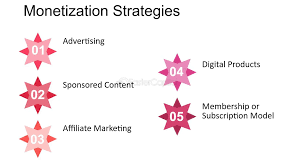
Affiliate Marketing
Affiliate marketing involves promoting products or services and earning a commission for each sale or action made through your affiliate link.
Bloggers can become affiliates and include activated links relevant to their niche in their content.
For example, an advertiser or technology blogger conducting gadget reviews might have referral links in their article on Amazon.
Purchasing through these links results in earning a commission from the blogger.
Sponsored Content
Bloggers may work with brands to produce sponsored posts for remuneration, including products and services.
For instance, a blog recording about fashion would possibly work with a fittings company to display their latest assortment.
Depending on the blogger’s popularity, engagement rate, and the brand’s specifications for the target customers or audience base needed for measurable results, varying forms of compensation can be preferred over direct monetary pay.
Advertisements
Using the blog as a monetization source and publishing advertisements on the blog is pretty standard.
Since bloggers opt for considerable traffic during their earnings, they can apply to be paid by ad networks such as Google AdSense, which splash advertising that might interest their visitors.
It receives funds from impressions (views) or clicks.
For example, a travel blog may have ads that revolve around aspects such as destination tours and products.
Regarding the blog volume, more visited blogs create a higher possibility of ad placement revenue.
Selling Digital Products
Bloggers may sell e-books, online courses, printables, templates, etc.
For example, a fitness blogger can provide an e-book as a complete workout guide, allowing individuals to enjoy downloading it.
Digital products bring in passive income, and early work on these can result in perpetual sales.
Subscription system
Others choose to implement a membership or subscription system where users pay regular fees for access to private Content or opportunities.
This model is made possible by platforms such as Patreon. An example includes a blogger specializing in finance who may extend premium investment advice or more extensive market analysis to patrons at the subscription fee.
This approach helps to grow a loyal community and provides consistent income flow from its followers.
Misconceptions about blogging
When aspiring bloggers decide whether to venture into blogging, they are often confused about whether “Is Blogging a Good Business?” due to common misconceptions.
Below are some;
Blogging Is Expensive
Starting and continuing to run a blog is often considered pricey.
This misunderstanding could be an illusion gained by believing bloggers must spend a lot on website construction, premium-priced themes, and other marketing tools.
However, blogging is possible for free with theme sites such as WordPress or Blogger.
Notwithstanding, some bloggers would instead opt to pay for the custom domain, professional theme package, or even paid marketing services, but these are optional.
Blogging can be budget-friendly, even for those just starting, and costs can be adjusted depending on the blogger’s preferences and financial capability.
Blogging Is a Dying Medium
Others believe that with video content becoming more popular and social media dominating the world of communication, older blogging is useless.
They think that short-form content on Instagram and TikTok has usurped their place.
Blogging remains an active and up-to-date platform for information sharing.
Even though video content has increased in popularity, blogs provide more profound and detailed discussions.
Search engines love written words, and most successful bloggers support their articles with media enhancements. The world of blogging has changed, but it’s hardly dead.
Every Blog Post Needs To Be Perfect
Aspiring bloggers may feel forced to develop the ‘perfect’ content when publishing a post.
The desire to be perfect is a significant obstacle for newbies in the blogging world.
Contrary to popular opinion about high-quality content, every blog post does not have a perfect shape.
Blogs are also flexible and dynamic, enabling bloggers to change their content as much as needed to perfect it.
Consistency and authenticity usually beat out perfection. Readers value authenticity and actual worth, which may improve with time, even little by little.
You Need an Existing Following
For some, a massive social media following or fame is also a precondition for establishing a profitable blog.
They believe a blog without an already established audience won’t succeed.
Thousands of successful bloggers today had zero followers when they started.
Through SEO practices, notable content promotion techniques, community involvement, content quality, and some marketing strategies can, in time, grow a blog’s faithful following.
Establishing a following is a slow, cumulative effort that does not always need preliminary prestige.
Blogging Is a Fast Way To Earn Money
Misconception: People often wrongly believe that blogging brings instant riches. Others think they will earn lots of money when they generate a blog.
Explanation: There are several ways bloggers make money, such as through ad sponsorship and affiliate marketing, but as they say, it doesn’t happen overnight.
Developing a loyal readership, gaining control in a niche, and perfecting monetization strategies vary slowly.
Blogging is a long-term strategy, and the cumulative impact of operating within stipulated time frames usually generates profitability.
Things to avoid in blogging
The answer to the question, Is Blogging a Good Business? can be a test or a no depending on how the following aspects are handled;
Plagiarism
Do not copy someone else’s work, something you do not have the right to use without precise attribution or consent.
Plagiarism can hurt your blog’s reputation, result in lawsuits, and make you an outcast in the blogosphere.
Always credit the sources and use plagiarism-checking tools to ensure your work is unique.
Neglecting SEO Best Practices
Not paying attention to the SEO optimization strategy can make your blog contractional in terms of visibility.
Remember essential SEO elements like keyword research, meta tags, and quality content.
Using a proper SEO strategy will enable your blog to get higher positions in search engine results, which can be achieved by acquiring a lot of organic traffic.
Overlooking Audience Engagement
Forgetting to interact with your audience can stunt the development of your blog. Never let comments, messages, or social media replies go unanswered.
Engaging the community around your blog should involve constant contributions and responses.
Having a connection with your audience builds trust and makes them lifelong followers.
Inconsistency in Posting
Lack of regular posting schedules could also negatively affect the readership.
Do not be mixed when it comes to gaining updates from your content.
Pick a timely posting frequency and stick to it.
Consistency does not keep your audience happy, but the search engine will know that you are consistently updating your blog, and therefore, Google will treat you as a contributor.
Ignoring Mobile Optimization
Failing to focus on mobile optimization can lead to a subpar user experience for most of your audiences, thus rendering a no to the answer to the question, ‘Is Blogging a Good Business?
If any of your users are accessing blogs from mobile phones, ensure that your blog’s design and layout are also responsive for low-budget smartphones.
Google also makes mobile-friendliness a ranking factor, significantly improving SEO performance and the blog.




